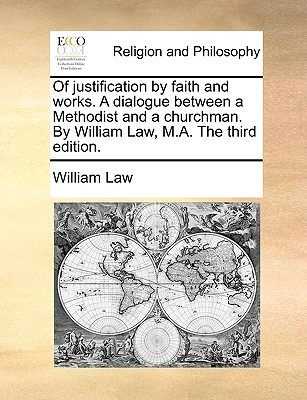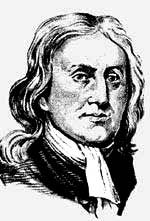
Of Justification by Faith and Works. a Dialogue Between a Methodist and a Churchman. by William Law, M.A. the Third Edition.
By William Law
2010
First Published
3.86
Average Rating
86
Number of Pages
The 18th century was a wealth of knowledge, exploration and rapidly growing technology and expanding record-keeping made possible by advances in the printing press. In its determination to preserve the century of revolution, Gale initiated a revolution of its digitization of epic proportions to preserve these invaluable works in the largest archive of its kind. Now for the first time these high-quality digital copies of original 18th century manuscripts are available in print, making them highly accessible to libraries, undergraduate students, and independent scholars.The Age of Enlightenment profoundly enriched religious and philosophical understanding and continues to influence present-day thinking. Works collected here include masterpieces by David Hume, Immanuel Kant, and Jean-Jacques Rousseau, as well as religious sermons and moral debates on the issues of the day, such as the slave trade. The Age of Reason saw conflict between Protestantism and Catholicism transformed into one between faith and logic—a debate that continues in the twenty-first century.++++The below data was compiled from various identification fields in the bibliographic record of this title. This data is provided as an additional tool in helping to insure edition ++++British LibraryT077267Also issued as part 'The works of the Reverend William Law, A.M.', vol. 9, London, [1780?]. printed for G. Robinson, 1772. 78p.; 8
Avg Rating
3.86
Number of Ratings
7
5 STARS
57%
4 STARS
0%
3 STARS
14%
2 STARS
29%
1 STARS
0%
goodreads
Author

William Law
Author · 7 books
William Law (1686 – 9 April 1761) was a Church of England priest who lost his position at Emmanuel College, Cambridge when his conscience would not allow him to take the required oath of allegiance to the first Hanoverian monarch, George I. Previously William Law had given his allegiance to the House of Stuart and is sometimes considered a second-generation non-juror (an earlier generation of non-jurors included Thomas Ken). Thereafter, Law first continued as a simple priest (curate) and when that too became impossible without the required oath, Law taught privately, as well as wrote extensively. His personal integrity, as well as mystic and theological writing greatly influenced the evangelical movement of his day as well as Enlightenment thinkers such as the writer Dr Samuel Johnson and the historian Edward Gibbon. Law's spiritual writings remain in print today.